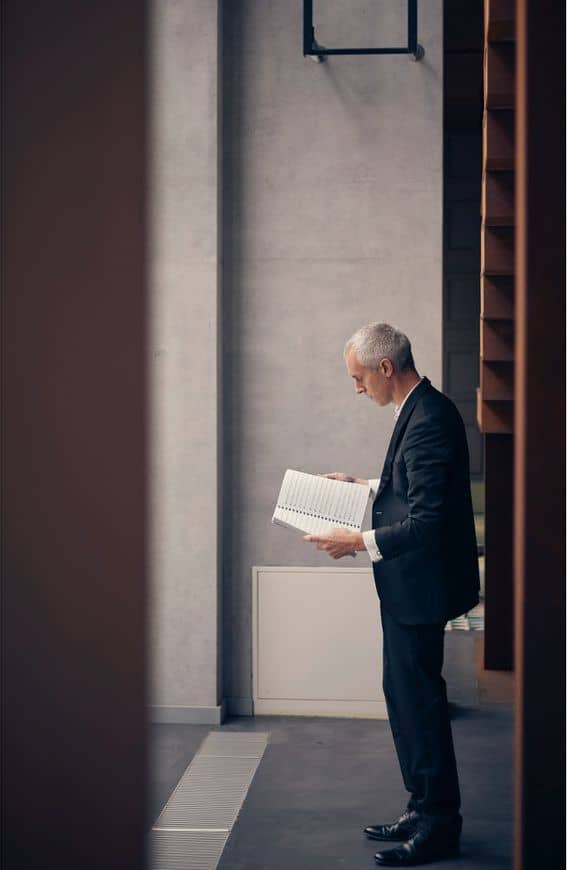Sebastien Daucé
The organist and harpsichordist Sébastien Daucé is lit up with the urge to revive an abundant yet little-known repertory, the sacred and secular music of seventeenth-century France.
It was during his training at the Conservatoire National Supérieur de Musique de Lyon that he met the future members of Correspondances. Key influences among his teachers there were Françoise Lengellé and Yves Rechsteiner. Initially in demand as a continuo player and vocal répétiteur (with the Pygmalion ensemble, the Festival d’Aix-en-Provence, and the Maîtrise and Orchestre Philharmonique de Radio France among others), he formed the ensemble Correspondances in Lyon in 2009, assembling around him singers and instrumentalists with a passion for the French sacred repertory of the Grand Siècle.
With this ensemble, which he directs from the harpsichord or the organ, he now travels throughout France and around the world, and frequently broadcasts on radio. Sébastien Daucé and Correspondances are in residence at the théâtre de Caen, where they developed their first staged projects (Trois Femmes directed by Vincent Huguet in 2016, Le Ballet Royal de la Nuit directed by Francesca Lattuada in November 2017). Atypical in its scenic proposals, the adventure continues with the English mask Cupid & Death in 2020, a resurrection of the Sacre de Louis XIV in 2021 and Charpentier’s David et Jonathas in 2023. Sébastien Daucé and the ensemble are also associate artists at the Opéra and Chapelle of the Château de Versailles.
Sébastien Daucé’s desire to revive already well-known composers like Charpentier while also showcasing the work of lesser-known French artists has led it to create a series of concerts at the Sainte-Chapelle in Paris in 2023 called Les Heures Musicales de la Sainte-Chapelle, in partnership with the Centre des monuments nationaux. Following on from the first edition of the festival – with all shows sold out – a second edition will occur in october 2024.
Significant stages in the ensemble’s career have been tours to Japan, Colombia, the United States and China, alongside regular appearance in Europe (the United Kingdom, Germany, Benelux, Italy, Poland). Its exploration of a little-performed and often unpublished repertory has led, with the support of the harmonia mundi label, a pioneer of the Baroque repertory in many respects, to a discography of nineteen recordings that have attracted considerable press attention and have received such distinctions as the Diapason d’Or of the Year, ffff de Télérama, Editor’s Choice in Gramophone, ‘Choc’ of the Year in Classica, German Record Critics’ Award and IRR Outstanding.
Correspondances now enjoys international recognition: at the ECHO Preis ceremony in the Berlin Konzerthaus in 2016, it won the award categories of Best World Premiere Recording (for Le Concert Royal de la Nuit) and Best Young Conductor of the Year, while the Australian Limelight magazine named it Operatic Recording of 2016 for Le Concert Royal de la Nuit.
Alongside his activities as a performing musician, Sébastien Daucé works with the leading scholars of seventeenth-century music, publishing regular articles and taking part in important performance practice projects. Passionately interested in questions of musical style, he edits the music that makes up the ensemble’s repertory, going so far as to recompose complete pieces when necessary, as was the case in Le Ballet Royal de la Nuit. He has taught at the Pôle Supérieur de Paris since 2012. In 2018 he was guest artistic director of the London Festival of Baroque Music. In 2023, he became artistic director of Les Promenades Musicales du Pays d’Auge. In 2023-2024, he is guest conductor of the Maîtrise du Centre de musique baroque de Versailles.
